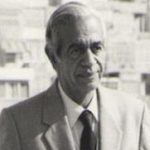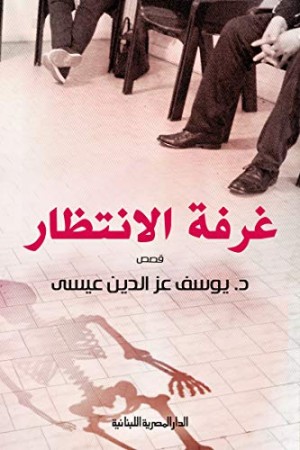Youssef Ezeddin Eassa,
1914 - 1999, Egyptian Writer & Master of Symbolic Literature and Radio Drama Pioneer
Tawfik Al Hakim once said about Youssef Ezeddin Eassa: "How could this little head carry all those ticking bombs of creative ideas and thought without exploding like a volcano?!"
Youssef Ezeddin Eassa wrote around 200 short stories, 10 novels, six plays and a good number of poems, together with over a hundred articles and analytical essays in the most prominent papers in Egypt and abroad. He was awarded the "National Literary Award", in 1987, first writer to obtain it while living in Alexandria, and was awarded various prestigious national awards, (see web site: eassa1914.net) He was also a pioneer in the field of Radio Drama in Egypt and the middle east; most famous pieces are ý'Al Asal Al Mor', 'La Taloumou Al Kharif'. He wrote almost 400 pieces of radio drama.
Alongside with being a writer, Youssef Ezeddin Eassa was also a university professor of Zoology who obtained his Ph.D. form England, and he was credited for practicing both art and science throughout his life. ''There's not contradiction between them'', he said, "Science makes art deeper and art makes scientific facts easier and more interesting.. they complete one another."
In his writings Youssef Ezeddin Eassa, creates an imaginary world of his own. He is philosophical, imaginative, sarcastic, symbolic, mystic and at times bitter. He excels at combining imagination, dream and fact, to create an original form of reality. His ideas contain depth and philosophy; has a writing school of his own, which has influenced great writers. He spoke about man, reflecting man's feelings and sufferings regardless of time and place, and his ideas crossed locality boundaries to further and deeper horizons. His works can be placed under the category of 'Modernism', where content means more than a beautified writing style. His ideas contain depth and philosophy.
Among his novels are "The Man Who Sold his Head" and his masterpiece "The Façade", which is considered by many critics one of the most influential novels that had had a tremendous impact on critics and readers. He also wrote, "Don't Blame Autumn", "Bitter Honey", "Eye of the Eagle", "The Statue", "Three Roses and a Candle", "The Father" and "Storms". He has 2 books containing a large number of his short stories, "Night of the Storm and Other Stories " and " The House and Other Stories". He also wrote "We Want Life and Other Plays." It contains 4 one-act plays, "In A Drop of Water", "We Want Life", " A Room with No Windows", and his masterpiece, "Visitors". The theme outlining most of his work was peace prevailing the world, and the fate of humanity. He also has a book called "Is It God or Nature", a result of a talk which he gave when staying in the United States as a visiting professor, 1961.
Dr. Youssef Ezeddin Eassa wrote over a hundred articles, some were weekly columns in the papers, under the titles, ''Weekly", "With Thought and Imagination'', "The Diary of Youssef Ezeddin Eassa"
He also wrote analytical essays "The World of Jul Vern", "The Tragic End of Virginia Woolf", "The World of William Faulkner", and many others. Moreover, he wrote about new theories of art, and what he believed to be a new meaning to The Realistic Novel.
He was also a member of "The High Committee of Arts and Literature", was "Head of the Fiction Club", Editor of "Amwag" magazine, Editor in Chief of "Alexandria" magazine. He introduced young writers by writing and giving talks about their work.
Throughout his life, he believed that art, science and intellect completed one another. Although he suffered a lot from the Cairo centralization, he yet refused several offers to move to Cairo again. He was actually criticized by so many people for living quietly in Alexandria, away from the Cairo media and lights. He used to say, "..what matters is the quality of what one writes.. writers are not categorized according to their home addresses.."
As a person, although he was mainly philosophical in his outlook, he enjoyed a high sense of humour, which remained with him until his passing away. He was a lover of nature, music art and culture. A dedicated family man, who loved his home. As a professor, his students admired him and enjoyed his lectures. He loved to be among people, loved people and sympathized with them all. Most of his literary works were about peace and he never understood why people would be unkind to one another although they all shared the horrifying end of death.
At the age of eighty-five, the cheerful young man who had come to Alexandria in his twenties and looked at its sea with meditative eyes had not changed much at heart. He had just got more mature, more sarcastic and had gray hair on his head. His sense of humor and love for life and humanity were still there. One of his most famous quoted sayings is: ''The most wonderful thing about life, is being in love with life, while we suffer beneath its burdens.''
Wish to know more about Youssef Ezeddin Eassa and can view his site send your feedback if you like. Site is :
www.eassa1914.com






